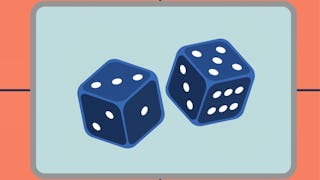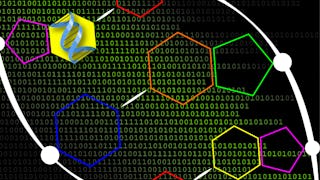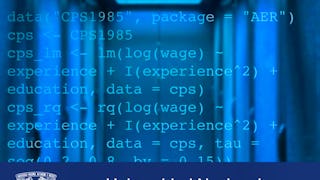Filter by
SubjectRequired
LanguageRequired
The language used throughout the course, in both instruction and assessments.
Learning ProductRequired
LevelRequired
DurationRequired
SkillsRequired
SubtitlesRequired
EducatorRequired
Explore the Parallel Computing Course Catalog
 Status: Free
Status: FreePrinceton University
Skills you'll gain: Programming Principles, Computer Programming, Object Oriented Programming (OOP), Performance Tuning, Data Structures, Java, Computational Thinking, Computer Science, Algorithms, Animations, Debugging

University of California, Santa Cruz
Skills you'll gain: Time Series Analysis and Forecasting, Bayesian Statistics, R Programming, Forecasting, Statistical Inference, Statistical Modeling, Technical Communication, Data Analysis, Probability, Statistical Machine Learning, Statistical Methods, Statistical Analysis, Advanced Analytics, Mathematical Modeling, Microsoft Excel, Markov Model, Probability Distribution, Probability & Statistics, Unsupervised Learning, Regression Analysis

Johns Hopkins University
Skills you'll gain: Bioinformatics, Data Science, Molecular Biology, Data Analysis, Programming Principles, Computer Science, Statistical Analysis, Computational Thinking, Big Data, Software Engineering, Algorithms, Biology
 Status: Free
Status: FreeUniversidad Nacional Autónoma de México
Skills you'll gain: R Programming, Statistical Programming, Ggplot2, Data Manipulation, Simulations, Statistical Software, Data Science, Data Visualization, Graphing, Programming Principles, Data Import/Export, Scripting, Data Structures, Software Installation, Package and Software Management

Skills you'll gain: Cloud Computing, Linux, Linux Administration, Cloud Security, Operating Systems, Windows PowerShell, Windows Servers, File Systems, System Configuration, Mac OS, Command-Line Interface, Security Controls, Firewall, Virtualization and Virtual Machines, Containerization, User Accounts

Interactive Brokers
Skills you'll gain: Derivatives, Equities, Futures Exchange, Risk Analysis, Financial Trading, International Finance, Investments, Securities Trading, Financial Market, Risk Management, Financial Statement Analysis, Financial Analysis, Market Analysis, Analysis, Capital Markets, Tax, Balance Sheet, Financial Regulations, Market Data, Market Dynamics

Rice University
Skills you'll gain: Java Programming, Java, Distributed Computing, Data Structures, System Programming, Programming Principles, Debugging, Algorithms, Computer Science, Performance Testing

DeepLearning.AI
Skills you'll gain: Tensorflow, Keras (Neural Network Library), Computer Vision, Image Analysis, Applied Machine Learning, Deep Learning, Artificial Neural Networks, Supervised Learning, Data Processing

LearnQuest
Skills you'll gain: User Story, Agile Methodology, Behavior-Driven Development, DevSecOps, Scaled Agile Framework, Backlogs, Agile Software Development, Test Driven Development (TDD), Sprint Planning, Kanban Principles, DevOps, Scalability, Risk Management, Agile Product Development, Agile Project Management, Continuous Integration, Lean Methodologies, Sprint Retrospectives, Scrum (Software Development), Management Reporting
 Status: Free
Status: FreeAmazon Web Services
Skills you'll gain: Amazon Web Services, Cloud-Native Computing, Computing Platforms, Technical Documentation, Infrastructure Architecture, Systems Architecture

Duke University
Skills you'll gain: Sampling (Statistics), Exploratory Data Analysis, Statistical Inference, Probability Distribution, Bayesian Statistics, R Programming, Data Analysis, Probability, Statistics, Statistical Software, Descriptive Statistics

Skills you'll gain: Cloud Infrastructure, Cloud Storage, Infrastructure As A Service (IaaS), Google Cloud Platform, Cloud Computing Architecture, Cloud Computing, Network Infrastructure, Virtual Machines, Cloud Management, Virtual Private Networks (VPN), Command-Line Interface, Firewall
Parallel Computing learners also search
In summary, here are 10 of our most popular parallel computing courses
- Computer Science: Programming with a Purpose: Princeton University
- Bayesian Statistics: University of California, Santa Cruz
- Introduction to Genomic Technologies: Johns Hopkins University
- Introducción a Data Science: Programación Estadística con R: Universidad Nacional Autónoma de México
- Operating Systems: Overview, Administration, and Security: IBM
- Practical Guide to Trading: Interactive Brokers
- Concurrent Programming in Java: Rice University
- Convolutional Neural Networks in TensorFlow: DeepLearning.AI
- Scrum Master Certification: LearnQuest
- Amazon Braket Getting Started: Amazon Web Services










